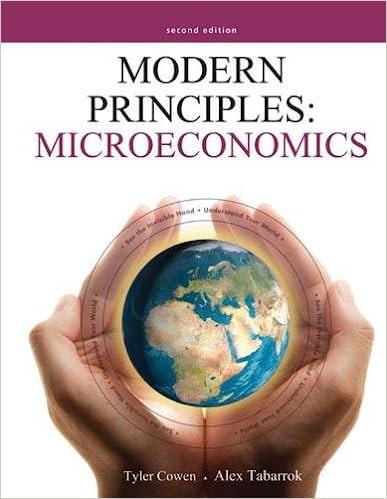1.4. We mentioned that the median voter theorem doesn't always work, and sometimes a winning policy doesn't...
Question:
1.4. We mentioned that the median voter theorem doesn't always work, and sometimes a winning policy doesn't exist. This fact has driven economists and political scientists to write thousands of papers and books, both proving that fact and trying to find good workarounds.
The most famous theoretical example of how voting doesn't work is the Condorcet paradox.
The Marquis de Condorcet, a French nobleman in the 1700s, wondered what would happen if three voters had the preferences like those below. Three friends are holding a vote to see which French economist they should read in their study group. Here are their preferences:
Jean 1st choice 2nd choice 3rd choice Walras Bastiat Say Marie Bastiat Say Walras Claude Say Walras Bastiat
a. They vote by majority rule. If the vote is Walras vs. Say, who will win? Say vs.
Bastiat? Bastiat v. W alras?
b. They decide to vote in a single-elimination tournament: Two votes and the winner of the first round proceeds on to the final round. This is the way many sporting events and legislatures work. Now, suppose that Jean is in charge of deciding in which order to hold the votes. He wants to make sure that his favorite, W alras, wins the final vote. How should he stack the order of voting to make sure W alras wins?
c. Now, suppose that Claude is in charge instead: How would Claude stack the votes?
d. And Marie? Comment on the importance of being the agenda setter.
(In case you think these examples are unusual, they're not. Any kind of voting that involves dividing a fixed number of dollars can easily wind up the same way--check for yoursel£1 Condorcet himself experienced another form of democratic failure: He died in prison, a victim of the French Revolution that he supported.)
Step by Step Answer:

Modern Principles Microeconomics
ISBN: 9781429239998
2nd Edition
Authors: Tyler Cowen, Alex Tabarrok






